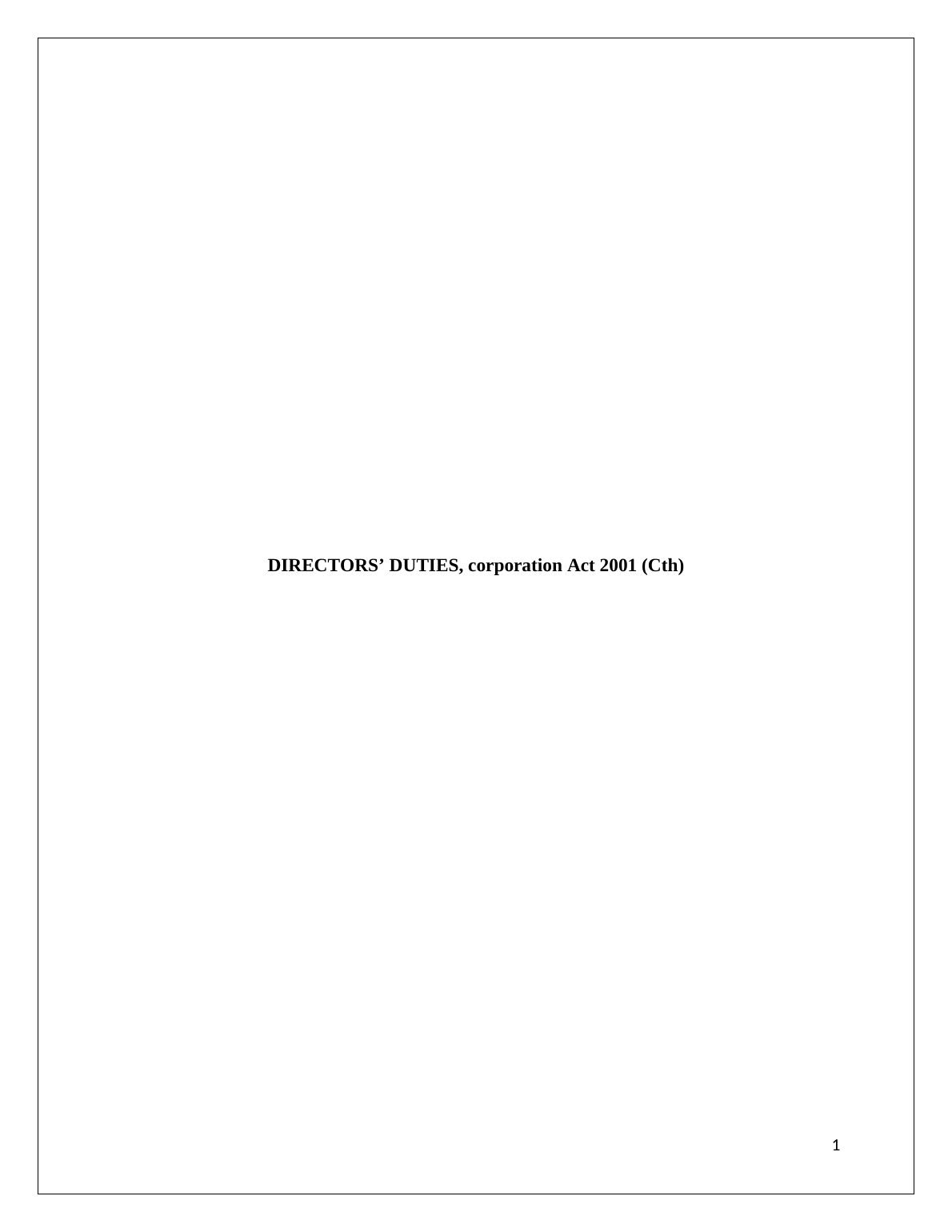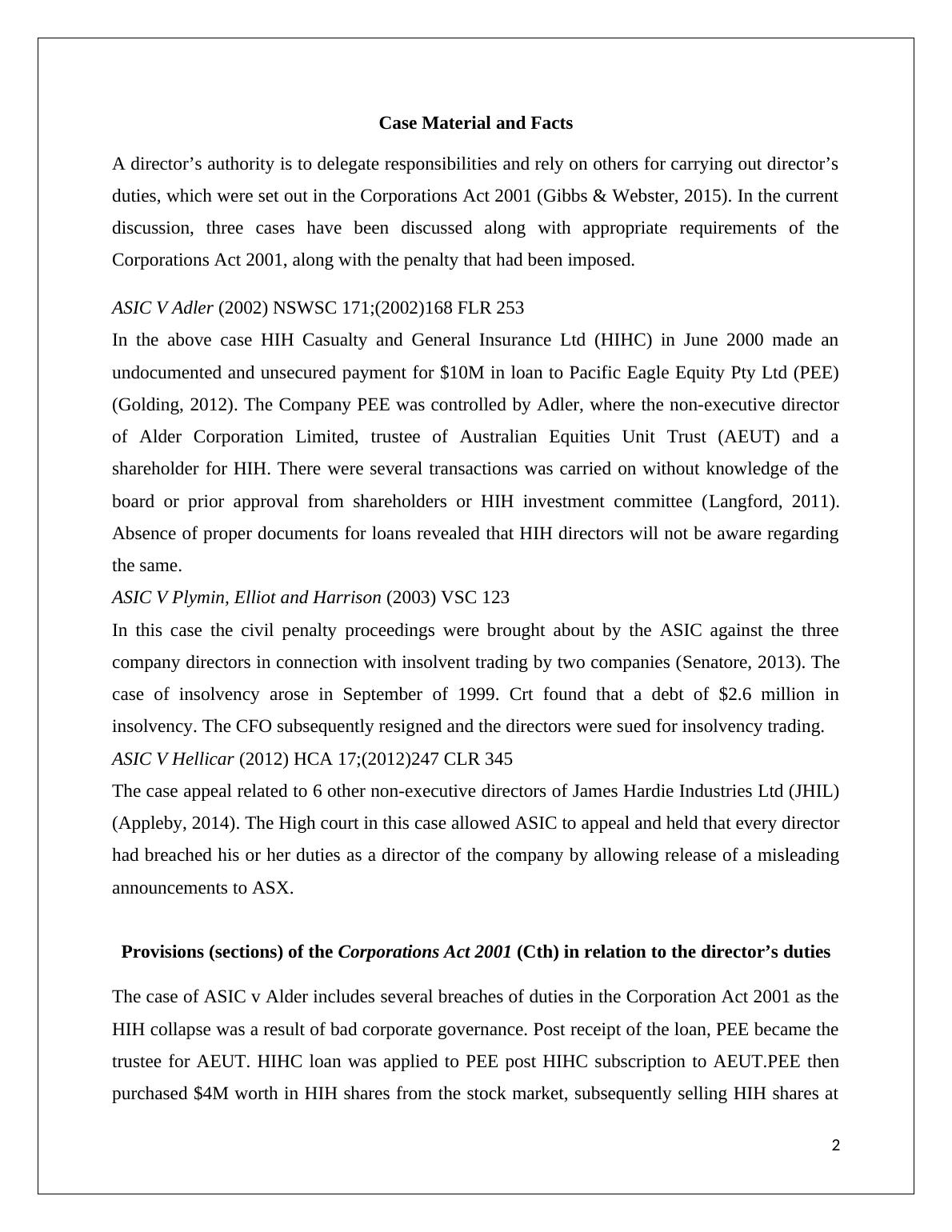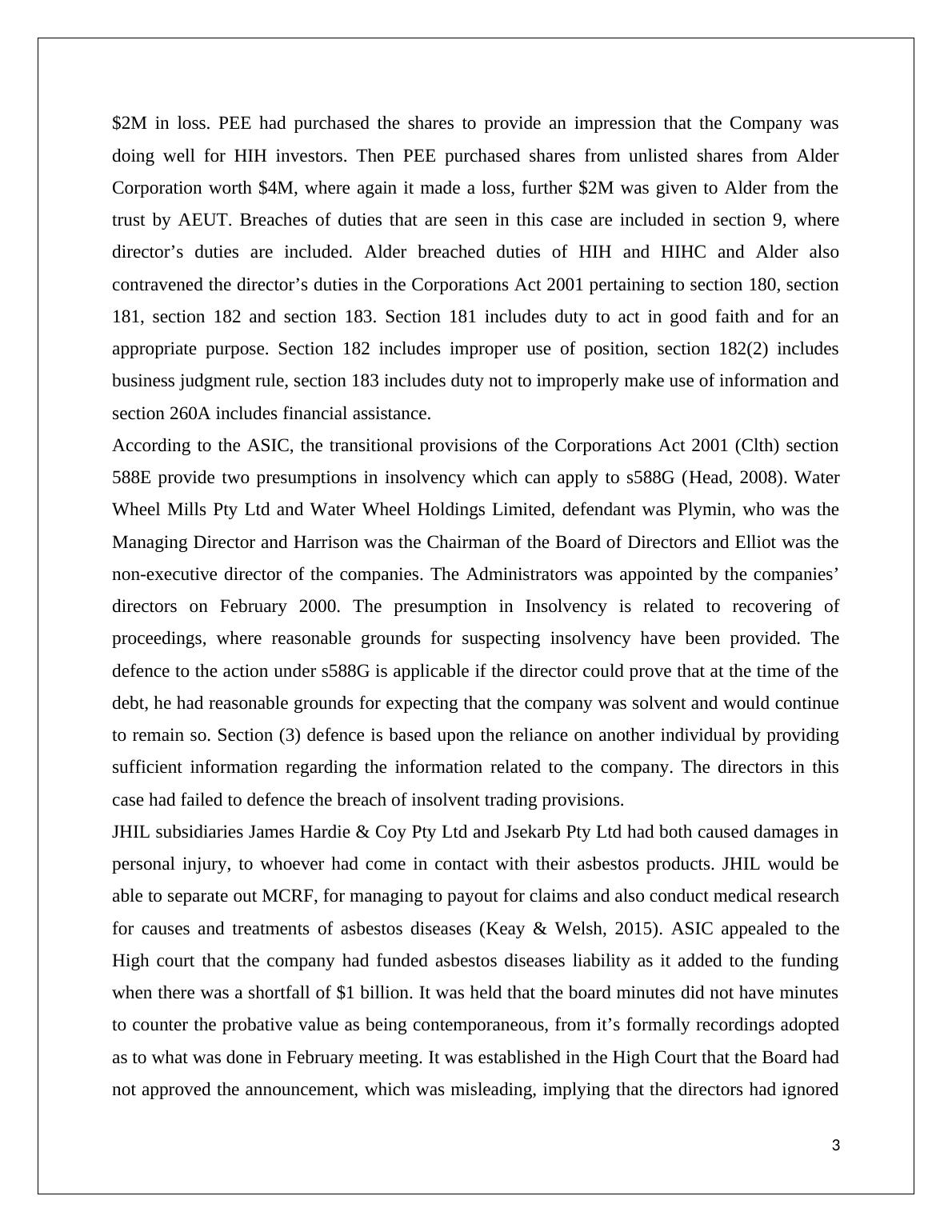Directors’ Duties, Corporation Act 2001 (Cth)
This article examines the current state of the law as it relates to delegation and reliance by Australian company directors through an analysis of the relevant statutory provisions and case law.
6 Pages1606 Words451 Views
Added on 2023-05-26
About This Document
This article discusses the provisions and penalty provisions of Directors’ Duties in Corporation Act 2001 (Cth) through three case studies. The cases include ASIC V Adler, ASIC V Plymin, Elliot and Harrison, and ASIC V Hellicar. The article also discusses the breaches of duties and the penalties imposed on the directors.
Directors’ Duties, Corporation Act 2001 (Cth)
This article examines the current state of the law as it relates to delegation and reliance by Australian company directors through an analysis of the relevant statutory provisions and case law.
Added on 2023-05-26
ShareRelated Documents
End of preview
Want to access all the pages? Upload your documents or become a member.
Corporations Law: ASIC v Adler Case Analysis
|7
|2304
|165
Breach of Duties and Obligations of Directors and Officers in ASIC v Alder Case Study
|5
|1368
|376
BA217 – Company Law | Assignment
|7
|1447
|42
ASIC v Adler [2002] NSWSC 171: Breach of Directors' Duties
|9
|2403
|225
BUSINESS AND CORPORATION LAW.
|11
|2458
|2
Corporation Law ASIC Vs Adler
|9
|2469
|211



